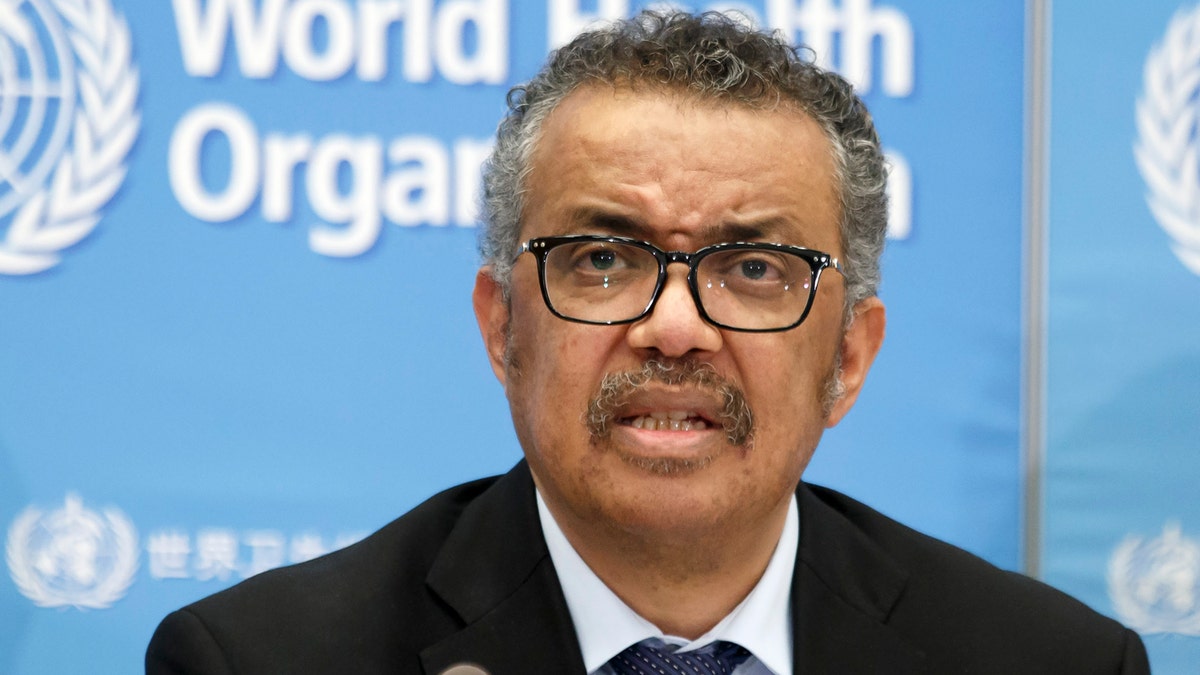China doubles down on coronavirus propaganda efforts
Reaction from key Republican lawmakers Sen. Tom Cotton and Rep. Dan Crenshaw.
Get all the latest news on coronavirus and more delivered daily to your inbox. Sign up here.
Residents in one New York county have filed a class-action lawsuit on Monday against the World Health Organization (WHO), accusing the agency of covering up the coronavirus pandemic.
The three residents in Westchester County -- which was seen as an original hotspot for the virus -- claim the WHO failed to quickly declare a pandemic and monitor China’s response to the original outbreak.
It seeks unspecified damages for the alleged harm the organization caused to the county's roughly 756,000 adult residents.

Tedros Adhanom Ghebreyesus, Director-General of the World Health Organization (WHO), addresses a press conference about the update on COVID-19 at the World Health Organization headquarters in Geneva, Switzerland on Feb. 24. (Salvatore Di Nolfi/Keystone via AP, File)
“The WHO mishandled and mismanaged the response to the discovery of the coronavirus and upon information and belief, engaged in a cover-up of the COVID- 19 pandemic in China,“ part of the suit read, according to the New York Post.
The lawsuit filed by Richard Kling -- a doctor, Steve Rotker and Gennaro Purchia was filed in the federal court in White Plains, N.Y.
Both Kling and Rotker are from New Rochelle which imposed a one-mile "containment area" around the area back in March to limit the spread of the virus.
The residents also claim the WHO was “causing and/or contributing to the subsequent spread of the coronavirus all over the world, including to the United States of America and the State of New York," according to the paper.
The three added the organization failed to provide treatment guidelines, advise members on how to respond including through travel restrictions, and coordinate a global response, according to Reuters.
CLICK HERE FOR MORE CORONAVIRUS COVERAGE
Westchester County has seen 776 deaths from COVID-19 as of Monday night, according to data from Johns Hopkins.









































